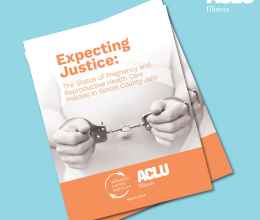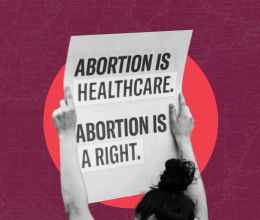By Patrice Bugelas-Brandt, Communications Department Volunteer
The scene is as chilling as its setting amidst icy river-rapids: The mother of an impoverished, early 20th century, Japanese family clings to rocks immersed in the freezing water with the hope that she will abort the baby she is carrying. The blockbuster Japanese film “Oshin” is a 2013 reprise of a popular Japanese TV series and is now playing, with subtitles, on some United Airlines flights. Looking for entertainment on a long flight, the film’s spectacular winter cinematography caught my attention but the storyline kept me watching. Unable to feed their existing brood of children the father in the film considers renting out their seven-year old daughter, Oshin, as a domestic servant. The mother, wanting to keep her family intact, but with few alternatives available to women of her time and class, turns to the often harsh and brutal form of family planning practiced over centuries.
The movie’s cast of strong, wise women quietly but forcefully guiding their families makes this a heart-string-tugging chick-flick. But it resonates because some issues never change. Today’s shrill discourse over abortion rights often implies that we are facing the implosion of all morality if as a society we allow women the freedom to control when, where and how they will choose to give birth. But women exerting control over their reproductive timing is a song that has no beginning or end…it is an integral part of the human story. In the movie, there is no shock or dismay over Oshin’s mother’s actions; just acceptance that women often must just do what needs to be done…as they always have.
As we near the 41st anniversary of the Supreme Court’s Roe v. Wade decision, the arguments of pro-choice over pro-life seem to have lost all connection with the fundamental reality that women have always struggled to control when to have children. Being able to give birth is part of a woman’s definition and, since time began, having or not having children is part of our personal stories. A 1997 book “When Abortion was a Crime” by Leslie Reagan traces the changing social dynamics behind abortion in the United States. Reagan maps how the basic biological phenomena of reproduction, which used to be completely part of a “woman’s world” morphed into an issue of social debate as Americans codified the practice of medicine and imposed laws which shifted reproductive control away from women.
Criminalizing abortion did not stop women from doing what they had always done, it just created a black market for reproductive control.
I look back and remember family stories about my grandmothers: one who always slept alone after her doctor warned her that another pregnancy might cost her her life, and the other, a young widow with two children who was caught lifting heavy bedroom furniture after her husband’s funeral. Every woman, every family, is touched at some point in their lives by family planning issues. Modern science has revolutionized our options but not lessened the responsibility women carry. That personal responsibility and desire for personal control have always been intertwined with reproductive rights.
As a society, we do face a group responsibility to tackle issues that determine reproductive health. High rates of sexually transmitted disease, high infant mortality rates, maternal morbidity and incidences of unwanted pregnancies are all social issues. Tremendous strides in medical and pharmaceutical knowledge have altered how, as a society, we can tackle these critical problems. Education and access to up-do-date standards of medical care give women choices and spare them the dilemmas women faced in the past.
The last five years there have seen escalating assaults on women’s reproductive rights with state legislatures enacting more and more restrictions on women’s sexual health. Do we, as a society, truly want to deny women the right to safely control their reproductive health? Limiting access to medically safe abortions or making contraceptives unaffordable will not stop abortions. Laws cannot take away a woman’s determination to control when and how she will have babies. Women have always and will always exert that control. But if left unchecked, bad laws will force desperate women back into something equivalent to the icy river Oshin’s mother sought as a solution to an unplanned pregnancy.
Get involved: take action on the anniversary of Roe v. Wade.





